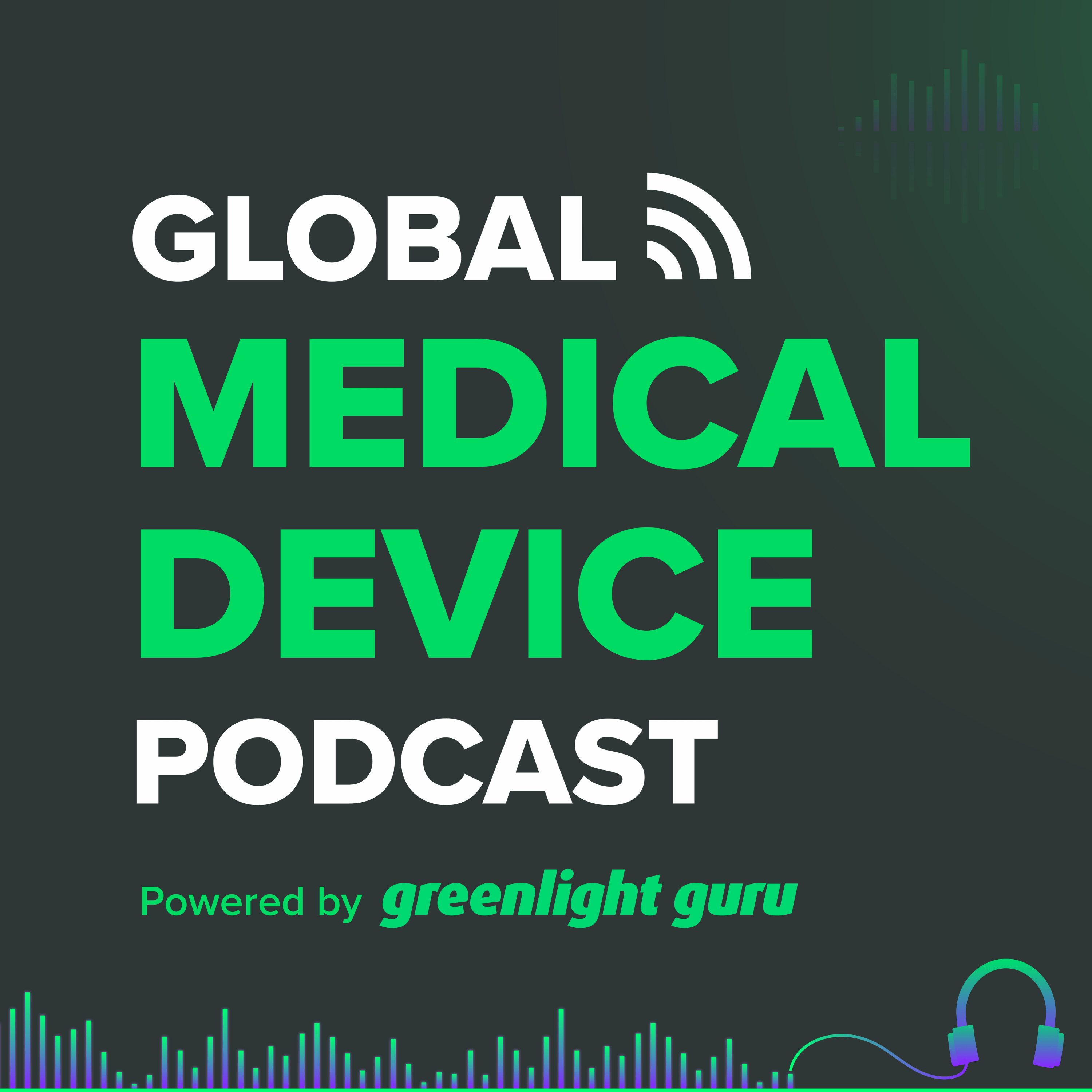Episode 418
#418: Biocompatibility Brief - What Medical Device Companies Need to Know
This episode offers a "biocompatibility brief" with guest Marina Daineko, a MedTech expert and chemist specializing in biological evaluations. Marina shares her perspective on the critical role of chemistry and critical thinking in assessing the safety of medical devices. The discussion highlights the need to look beyond simple pass/fail tests and delve into the nuances of raw data analysis, material composition, and manufacturing processes to uncover potential risks.
Marina emphasizes that biocompatibility is not an isolated task but must be fully integrated into a company's quality management system (QMS). She explores the connection between biological safety and key QMS processes such as change management, post-market surveillance, and CAPA. The conversation also touches on the shift from a reactive to a proactive mindset in the industry, driven by new regulations like the latest revision of ISO 10993-1.
Using real-world examples, Marina illustrates the importance of considering long-term patient exposure and cumulative effects. She provides clear explanations of complex concepts like the difference between extractables and leachables. Her advice to MedTech professionals is to always be curious, ask questions, and prioritize communication across all teams to ensure the safety and efficacy of medical devices.
Key Timestamps
- 01:37 - Importance of a Biological Evaluation Plan and in-depth data analysis
- 03:48 - The need for critical thinking in biocompatibility, highlighted by the silver ion example
- 06:03 - How a chemistry background informs a deeper understanding of materials
- 08:06 - Real-world examples of biocompatibility risks from the Netflix documentary, The Bleeding Edge
- 11:20 - Discussion on cumulative effects and long-term exposure to materials
- 12:56 - Applying a risk-based approach beyond standard tables
- 15:39 - The difference between extractables and leachables
- 18:18 - Integrating biocompatibility into the QMS (change management, CAPA, post-market surveillance)
- 22:01 - The shift from reactive to proactive biocompatibility approaches
- 23:55 - How to explain complex biocompatibility concepts to non-technical teams
Quotes
- "Biocompatibility is not a bubble. It must be integrated into the quality management system." - Marina Daineko
- "Don’t be shy and ask the questions. Stay curious... and communicate." - Marina Daineko
Takeaways
- Go Beyond the Checklist: A biological evaluation plan and critical thinking are essential. Don't rely solely on standard pass/fail tests; analyze raw data and question unexpected results, as seen in the silver ion example.
- Assess Cumulative Risk: For long-term or implanted devices, consider the cumulative effect of chemicals that may leach from the device over time. Proactive risk management should account for this long-term exposure.
- Integrate Biocompatibility into the QMS: Biocompatibility should not be treated as a standalone task. It must be integrated with core QMS processes like change management, CAPA, and post-market surveillance to ensure continuous device safety throughout its lifecycle.
- Communicate Across Teams: Effective communication is paramount. Technical biocompatibility information must be translated for different teams—from regulatory and quality to marketing and sales—by highlighting the impact on deadlines, compliance, and patient safety.
References
- Netflix Documentary, The Bleeding Edge: A documentary that exposes systemic flaws and risks within the medical device industry, featuring the case of the Essure device.
- ISO 10993-1: The international standard for the biological evaluation of medical devices, which is undergoing revisions to emphasize a lifecycle-based approach to safety.
- Etienne Nichols' LinkedIn: For more insights on MedTech and quality management, connect with Etienne at https://www.linkedin.com/in/etienne-nichols.
MedTech 101: Extractables & Leachables
In simple terms, extractables are all the potential chemicals that could leak out of a medical device under harsh lab conditions, like high temperatures or strong solvents. Think of it as a comprehensive stress test to find every single chemical component.
Leachables, on the other hand, are the chemicals that actually leak out under normal, clinically relevant conditions. This is what a patient's body might be exposed to during the device's actual use.
Regulatory bodies like the FDA often require both types of analysis to ensure a comprehensive understanding of a device's chemical profile.
Feedback Call-to-Action
Have thoughts on today's episode or a topic you'd like us to cover? Your feedback is invaluable. Email your comments and suggestions directly to us at podcast@greenlight.guru. We read and respond to every email.
Sponsors
This episode is brought to you by Greenlight Guru, the only medical device success platform designed specifically for MedTech companies. Their all-in-one platform includes both a QMS and a Clinical Data Management System (EDC), providing a single source of truth for all your product development and clinical data. By streamlining your processes, Greenlight Guru helps you get safer, higher-quality medical devices to market faster and with less risk.
Greenlight Guru's platform aligns perfectly with today's discussion on integrating biocompatibility into the QMS. By providing a centralized, risk-based system, it helps teams proactively manage design controls and post-market surveillance, ensuring biological safety is considered throughout the entire device lifecycle. To learn more, visit www.greenlight.guru.

